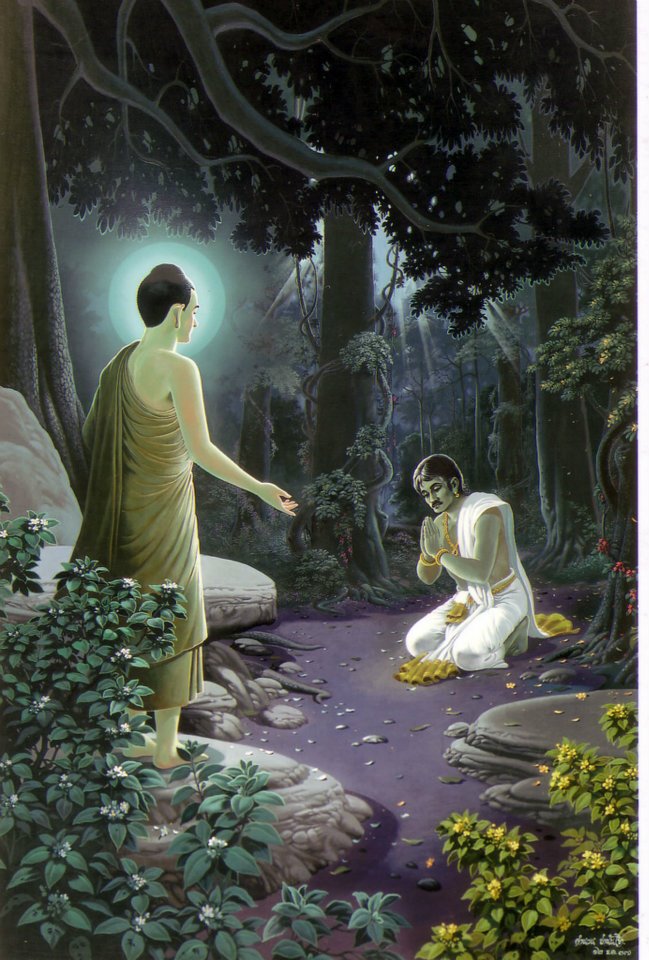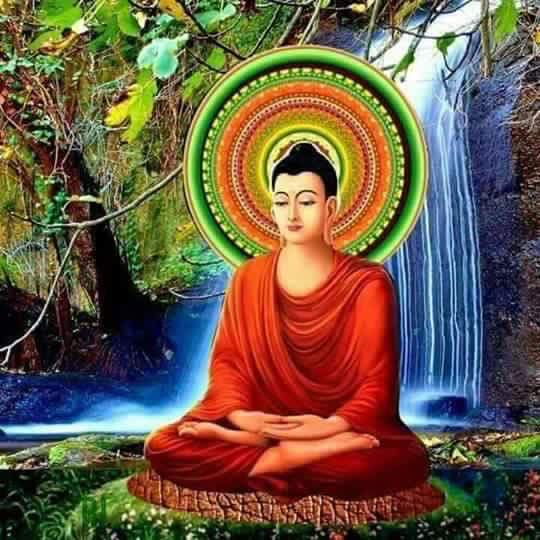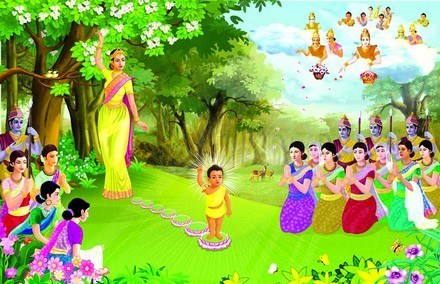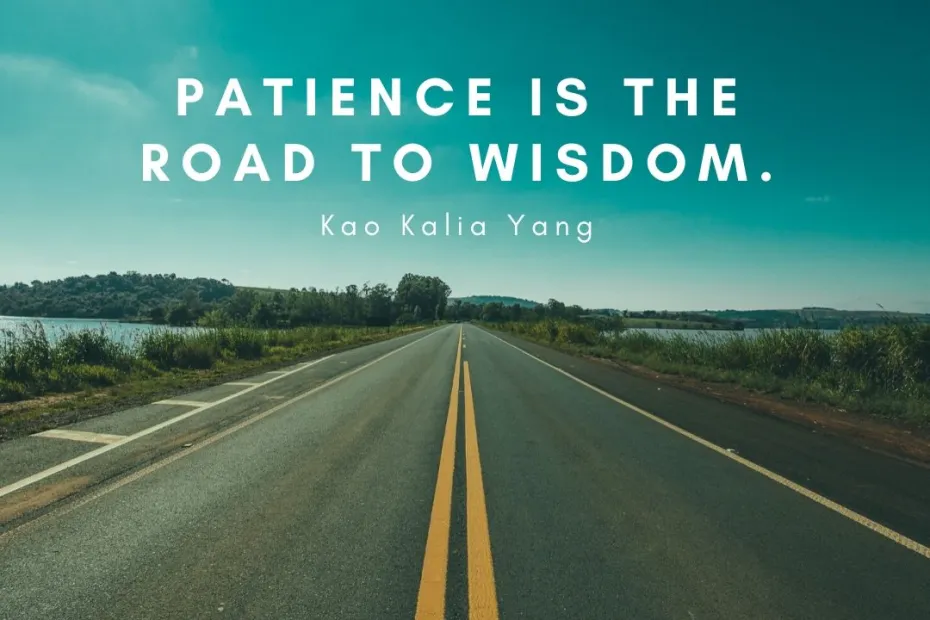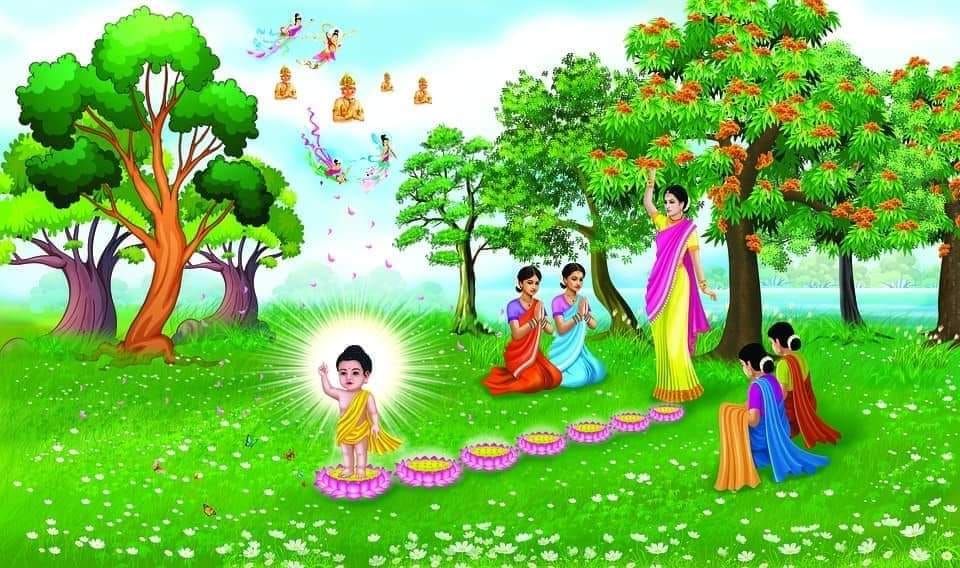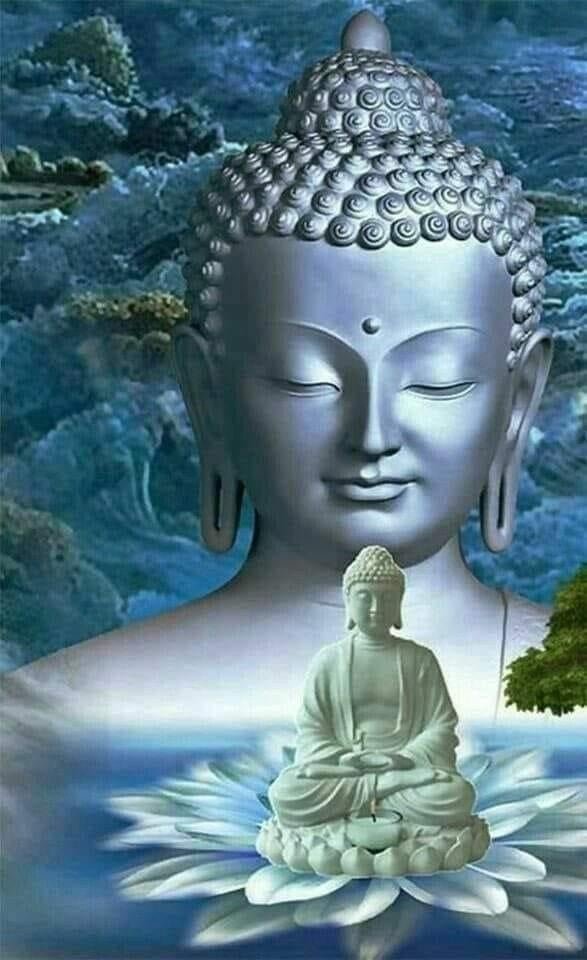Dharma Master Andrew. J. Williams
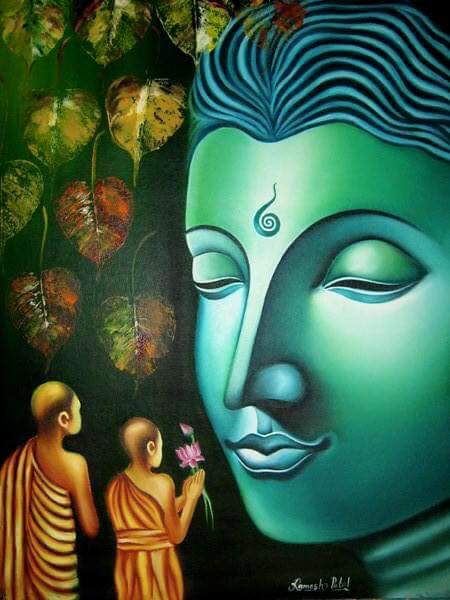
Q&A FOR THE BENEFIT OF ALL – PART 1
●◆● ════ ◆◇◆ ════ ●◆●
“Here are three of the many questions that I was asked a few years ago by young adults while giving a series of Dharma talks at a five-day retreat near Melbourne, Australia. My answers follow each question. Each answer was intended to satisfy and benefit both the individual who asked the question, as well as all those in attendance. May you also benefit in your own way from these questions and answers.
Question 1:
Can you explain how feelings of self-doubt are also a form of attachment to self? Can you offer strategies on how to be more loving and kind towards yourself, and not place so many expectations on yourself?
Answer 1:
To live a contented life we must develop and maintain an open mind, for if we are open-minded we will experience life with more clarity and understanding. We will allow ourselves the opportunity to be happier, and be able to deal with life’s changes and difficulties more calmly, as well as being able to find solutions to our problems with less worry and anxiety.
When our mind is not open, we cut ourselves off from experiencing life to the fullest. It is not beneficial to keep a closed mind, thinking that our way is the only way, that this is just the way we are. The more our mind is closed, the more likely we are to drag ourselves and others around us down, and the less likely we are to experience contentment and peace, and to develop true compassion and understanding.
We are intimately connected with all of nature. It is most important to realise this. For if we know this fact then we are more likely to coexist with all living beings and all of nature in a peaceful and harmonious way.
Many of our worries, discontent, agitation and feelings of being disconnected arise due to not realising this natural truth. We should open our minds and be less self-centred.
Take for example a camera. When the camera’s focus is set on close-up, all we see through the lens is the close-up. Nothing else is seen. This is like when we are self-centred. We are focusing on ourselves, our problems and discontent, our likes and dislikes, and so on and so forth. At this time they are like the whole universe and nothing or no one else matters or exists.
But the more we widen and open the focus of the camera’s lens, the more views and wider perspective of all that is around us is available to our vision. Likewise, the more we widen our focus, widen our view, open our mind, the more we allow ourselves the opportunity to develop genuine insight into ourselves, others and all of nature, and be at peace and in harmony with ourselves and all that surrounds us.
Question 2:
Can you offer strategies on how to manage anger? When I’m in the middle of being angry, it is often very difficult for me to stop and be mindful because I am so caught up in the emotion. How do I learn to stop being so caught up in the emotion. How do I learn to stop being so caught up in my emotions, so I don’t end up engaging in thoughts, speech and action that I may regret?
Answer 2:
Anger only ever causes suffering. We should eradicate it whenever it arises. Just as we don’t hang onto rain when the sun comes out. All things pass. Replace anger with acceptance, patience, appreciation and loving kindness.
We should do our very best to protect our mind by enthusiastically practising the Four Great Efforts, as taught by the Buddha. To eradicate any unwholesome thoughts that have already arisen, to stop any new unwholesome thoughts from arising, to give rise to wholesome thoughts and to maintain wholesome thoughts that have already arisen. The Buddha said, “With sustained effort and sincerity, discipline and self-control, the wise become like islands which no flood can overwhelm”.
When mental sensations and thoughts arise, don’t cling to them or follow them, or turn them into something bigger than they are. For they are simply conditioned habitual tendencies.
Be proactive and ‘nip them in the bud, by just letting them go naturally, rather than being reactive, reacting to them and then reacting to the reaction, and so on and so forth.
For instance, if we let the weeds in the garden grow, unrestrained and uncontrolled, the size and amount of weeds continually increase and become overwhelming.
Likewise, if our thoughts and feelings are left to grow, unrestrained and uncontrolled, they will intensify and eventually become overwhelming.
We experience the world through our senses, which gives rise to mental sensations or feelings, which are either pleasant, unpleasant or neutral. We then recognise or perceive these sensations, and normally, then impulsively react, which in turn leaves a karmic imprint on our consciousness.
We should create, what I like to call, a ‘buffer zone’ between the perception of the sensation and the impulsive reaction. In other words, allow ourselves the opportunity to not impulsively react. In this way we can protect ourselves from creating negative karma.
To give a brief example, if we bump our head on something hard, generally the sensation we experience would be unpleasant. We then perceive this unpleasant sensation and impulsively react with frustration or even fully blown anger, which in turn leaves a negative karmic imprint on our consciousness.
However if we create a ‘buffer zone’ between our perception of the unpleasant feeling and our impulsive reaction, we will avoid creating negative karma.
Enjoy your ‘buffer zone’. ‘Nip negativity in the bud’, before it becomes overwhelming.
Question 3:
How do you decide what is ‘good, or ‘bad’ when the issue of morality is subjective? For example, in some cultures, it is acceptable to kill animals and offer them as sacrifices to higher beings. In their minds, this is perfectly acceptable and not considered a ‘sin’. So since these people have killed without bad intention, do they still suffer from negative karma? Even if their intentions were not entirely unwholesome, they have still committed the act of taking a life. Does this still create more bad karma?
Answer 3:
Destroying the life of any living being will always bring unwholesome and undesirable results. Whereas, respecting and protecting the life of any living will always bring wholesome and desirable results. There’s no escaping the universal law of karma.
Put simply, we can classify any act as ‘good’ when it results in the benefit of one and all. When it causes peace, understanding, harmony and joy.
Whereas, we can classify any act as ‘bad’ when it results in the harming of ourselves and others. When it causes conflict, delusion, discord and suffering.
Of course, of utmost importance is our intention. The stronger and more intense the intention behind our actions is, the stronger and more intense will be the results.
Any action of body, speech, or mind, places an imprint, an ‘energy potential’ or ‘seed’ in the mind. Mental seeds are planted through your awareness of what you do, say or think. The imprints of these actions are left on the mind stream and carried on moment by moment – the present moment of mind coming from the previous moment of mind.
When the necessary supporting conditions are in place, this imprint, or latent potency, manifests as perceptions or experiences of happiness or suffering. We can liken this to a biological seed, which ripens when the contributing causes and conditions of water, soil, sun, and the like are gathered together.
Therefore, for the benefit of ourselves and others, we should do our very best to avoid unwholesome actions of body, speech and mind that bring harm, and engage in only wholesome acts of body, speech and mind that bring benefit, to one and all.
May these words, both the questions and the answers, be somewhat helpful on your path to enlightenment.
Homage to the Enlightened One’s.
Namo Buddhaya.”
●◆● ════ ◆◇◆ ════ ●◆●
~Dharma Master Andrew. J. Williams~
Q&A FOR THE BENEFIT OF ALL – PART 2
◆● ════◆◇◆════ ●◆●
“Here are three more of the many questions that I was asked recently by young adults while giving a series of Dharma talks at a five-day retreat near Melbourne, Australia. My answers follow each question. Each answer was intended to satisfy and benefit both the individual who asked the question, as well as all those in attendance. May you also benefit in your own way from these questions and answers.
Question 1) Are there any monastic rules that might bar a transgender person from receiving full ordination to become a monk or a nun? In this case this transgender person would have undergone surgery to change their sex/gender. I am more interested in the Vietnamese Mahayana tradition, because even in Vietnamese culture transgender people are shunned by their own family, relatives and friends.
Answer: The Buddha Dharma is for the benefit of all sentient beings, therefore there should be no prejudice shown towards any living being.
I’m not aware of any monastic rules that would bar a transgender person from the monastic order. Although I’m not 100% sure. May I suggest that you query a few different monks and nuns on this matter and ask for their views, both from a Vinaya (monastic rules of conduct) and a personal opinion viewpoint.
Years ago I was asked whether Buddhists are prejudiced towards homosexuals, and answered by saying that ‘we should not be prejudiced towards any of the myriads of sentient beings that we know about and even the ones that we don’t know about. So how can we be prejudiced towards homosexuals?’ Therefore, how can we be prejudiced towards any living beings, including transgender people?
Although I should add that the intention of any person who wants to join the monastic order should be pure. For their own benefit, as well as for the benefit and integrity of the monastic order, and Buddhism as a whole.
Question 2) In the west, capitalism dictates that our free will is determined by how much money we have. For example if we had more money we can pay for our tuition fees and college courses. Basically wisdom in western society is accessed by those who can afford it and are fortunate. Even free will itself is an illusion for a person can go left or right, downstream, but in that river we cannot swim back, we are determined to go one way regardless of our material, financial choices. What is freedom then? When the power to choose is either redundant or negligible?
Answer: Of utmost importance is our intention. The one thing we can control is our state of mind, no matter what the external conditions are in relation to our studies, chosen career path, hobbies and so forth.
While it is true that we need money to achieve our goals in life, what is of more importance is having good intentions and having a clear vision of and insight into how we can achieve our goals, as well as making enthusiastic effort in the right direction towards fulfilling these goals.
When it comes to inequality in relation to important aspects of life, such as education, may I add that equality and equal opportunity for all is essential to a peaceful and harmonious environment.
For us all to have peaceful and harmonious homes, communities, regions, countries and world, all people need to have equal opportunity to have access to the essentials in life. For there to be equality everywhere, all of the time.
All people have the basic right to have clean air to breath, water to drink, food to eat and sufficient shelter to protect us from the elements.
We all have the right to have equal opportunity in regards to education, medical assistance, work, transport and the like, as well as to have freedom of thought, speech and action. The right to live.
It is life that all people treasure the most, knowing this, how can we harm each other or deprive each other of the basic and essential rights and freedoms.
Inequality breeds frustration, confusion and conflict, whilst equality breeds contentment, peace and understanding.
So let’s create and maintain homes, communities, regions, countries and a world of equality and equal opportunity for all, and a peaceful and harmonious environment for us all to live in.
I hope your goals are achieved as swiftly as possible, based on pure intentions.
Question 3: Why is there pain in life?
Answer: Pain and suffering are caused by our ignorance, greed, hatred, arrogant pride, doubt and wrong views, these are known as the six root delusions, and they give rise to all of our many mental afflictions. They are the cause of all the suffering in the world. If we want to be free from pain and suffering, we must do our very best to abandon the causes of pain and suffering.
All of us wish to experience happiness and wish to avoid suffering. But so often we live contrary to these wishes. We greedily chase after happiness as if it were something we can acquire, and get angry when we experience some form of suffering.
We need to change the way we think and behave. We need to study, contemplate and understand the universal Law of Karma, of cause and effect. If we want to be happy and not unhappy, we must maintain a mind that is free of delusion, greed and anger, a mind that is wise, open and loving.
We should avoid all extremes, practice the middle path, which consists of perfect understanding, intention, speech, action, livelihood, effort, mindfulness and concentration.
Transcend the extremes of eternalism and nihilism. Practise the eight-fold path. Train yourself in morality to live a pure and sacred life. Train yourself in meditation to develop awareness, attention and focus. Train yourself in wisdom to perceive things as they are.
Morality training consists of right speech, action and livelihood. Right speech means speech free from lying, slandering, using harsh language and gossip. Right action means actions free from killing, stealing and sexual misconduct. To act with respect for life, generosity and care. Right livelihood means to abstain from trading in anything that would bring harm to ourselves and others. Our virtue should always out-weigh material gain.
Meditation training consists of right effort, mindfulness and concentration. Right effort means to do ones best diligently toward the right direction. The effort to overcome and avoid unwholesome thoughts, and to develop and maintain only wholesome thoughts. Right mindfulness means to maintain a pure and thoughtful mind, mindfulness in regards to body, feelings, mind and mind objects. Right concentration means to keep the mind clear and tranquil for its concentration, seeking to realise the minds pure essence.
Wisdom training consists of right understanding and intention. Right understanding is the wisdom of clear vision. Seeing things as they are, to thoroughly understand the four noble truths, the law of karma and not to be deceived by appearances and desires. To look at ourselves and the world without delusions or distortions about reality. Right intention means the resolution not to cherish desires, be greedy or angry, and not to do any harmful deed. Intentions free from ignorance, attachment and aversion.
May these words, both the questions and the answers, be somewhat helpful on your path to enlightenment.
Homage to the Enlightened One’s.
Namo Buddhaya.
◆● ════◆◇◆════ ●◆●
~Dharma Master Andrew. J. Williams~




